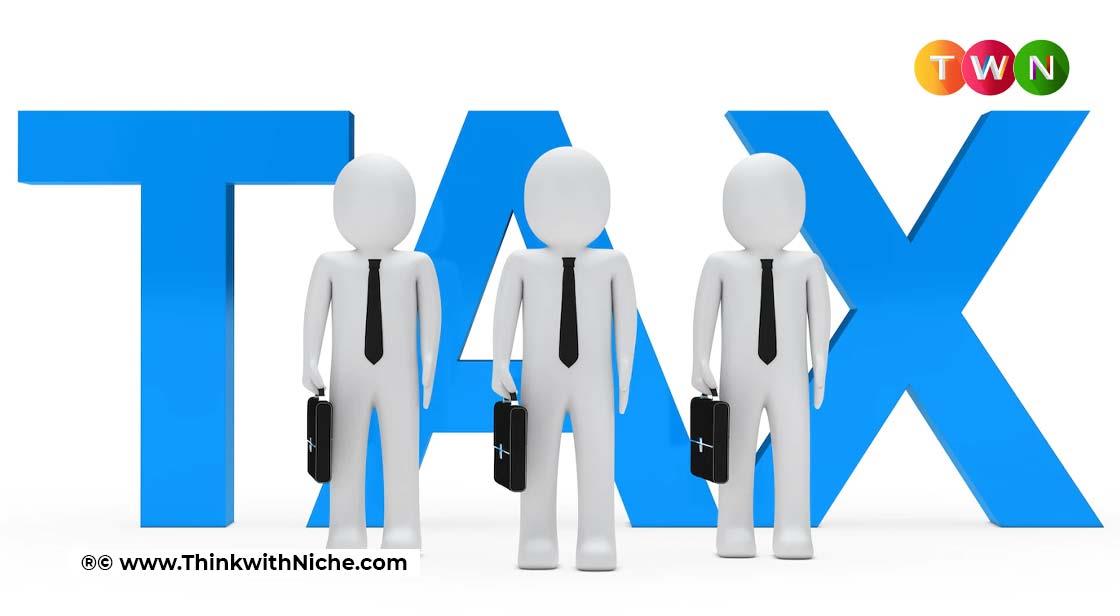Tax Breaks For Investing In Small Corporation

Blog Post
In the government's fiscal year 2020, there were 1.8 million C firms and approximately 5 million S corporations (which ended on September 30, 2020). We may infer that the bulk of them were small businesses because the SBA asserts that 99.9 percent of all organizations are "small." #ThinkWithNiche
Whether you win or lose, forming a business may result in tax advantages for the founders. Each break has its own set of requirements, thus one or both may apply in a given situation (i.e., you may use a break if you win or lose). If your investment is a success, you may be able to take advantage of one of these choices.
Congratulations If You Succeed!
If you invest in a small firm (or if you invested after September 27, 2010), you may be able to sell your shares and realize tax-free gains. Gains are not taxed, regardless of your income or any other reason. To qualify, Sec. 1202 stock, commonly known as qualified small business stock (QSSB), must be held for at least five years.
- The shares must be issued by a C corporation in the United States. The stock of an S corporation is not tax-deductible. It also cannot be a foreign C corporation.
- Health care, legal, engineering, architecture, accounting, actuarial science, performing arts, consulting, athletics, financial services, or brokerage services; banking, insurance, finance, leasing, or investing; farming; mining; or running a hotel, motel, or restaurant are all prohibited. So, what are the alternatives now? Sec. 1202 stock is useful in several areas, including technology, manufacturing, retail, and wholesale.
- The shares must be acquired directly from the corporation in exchange for cash, property, or services provided. A gift or inheritance might be used to purchase stock in the firm. However, you cannot obtain it by purchasing shares from someone who obtained it legally.
- The total gross assets of the firm must be less than $50 million on the day the shares are issued. This asset limitation applies before and after the stock is issued.
- The corporation cannot only be a holding company; it must also operate a legal business. At least 80% of the corporation's assets were employed in the active operation of one or more qualifying companies (i.e., those that are not in barred industries).
The untaxed gain in this scenario cannot exceed $10 million ($5 million for married couples filing separately), less any gains excluded in previous years, or 10 times the shareholder's basis in the shares, whichever is greater. Lower thresholds apply to married couples filing separate returns. QSSB's stock offers an added benefit. Profits that are fully excluded from gross income are likewise exempt from the 3.8 percent net investment income tax. Can't commit to the requisite 5-year term? When you roll over QSSB stock into another QSSB share within 60 days of a sale, you can avoid paying taxes on the gain on long-term QSSB stock ownership.
If You Are Defeated
Section 1244 stock (explained below) includes a clause that permits you to claim an ordinary loss of up to $50,000 ($100,000 for joint filers even if only one spouse owns the stock). You are still entitled to a break regardless of how long you have owned the shares. An extra $3,000 in ordinary income can be used to offset any losses that exceed this limit, which is deducted from capital gains in the year the loss occurs. Any losses over your taxable income can be carried forward indefinitely.
To qualify as Sec. 1244 stock, security must fulfill the following criteria:
- The firm must be based in the United States (not a foreign corporation). It might be either a C or an S corporation.
- It must be "small," which implies that the corporation can receive no more than $1 million in cash and property for each share issued. If the firm issues further stock in the future, it may designate which shares, if any, are subject to Section 1244 if the total number of shares issued exceeds $1 million.
- The shares must be given away in exchange for money or property. It cannot be used to pay for services.
- Only the original owner of the stock is eligible for Sec. 1244 treatment. No stock obtained as a gift or inheritance, or in any other way, qualifies (there are some exceptions for certain corporate reorganizations and stock dividends).
- It's conceivable that the stock is common or preferred.
- The firm must pass a gross revenue test in the year in which the shareholder experiences a loss. In the five most recent years, more than half of the corporation's total revenue must have originated from sources other than royalties, rents, dividends, interest, annuities, and sales or exchanges of stocks or securities (or the life of the business, if shorter). However, unlike QSSB stock, there are no restrictions on the industries in which it can be used.
If the stock is sold or the company goes bankrupt, the loss can be recovered. You do not need to submit anything additional with your tax return if the IRS doubts the validity of your Sec. 1244 stock.
Finally, Examine The Following
There are a few points to keep in mind here:
- These tax breaks do not apply to limited liability companies, partnerships, or sole proprietorship interests. Keep these tax advantages in mind if you want to start a business but aren't sure what type of corporation to form. Entity selection should not be dependent primarily on these, but they should also not be dismissed.
- The proposed law will not affect these tax breaks.
- Work with your CPA or another tax professional to understand the rules and how they relate to your particular situation.










